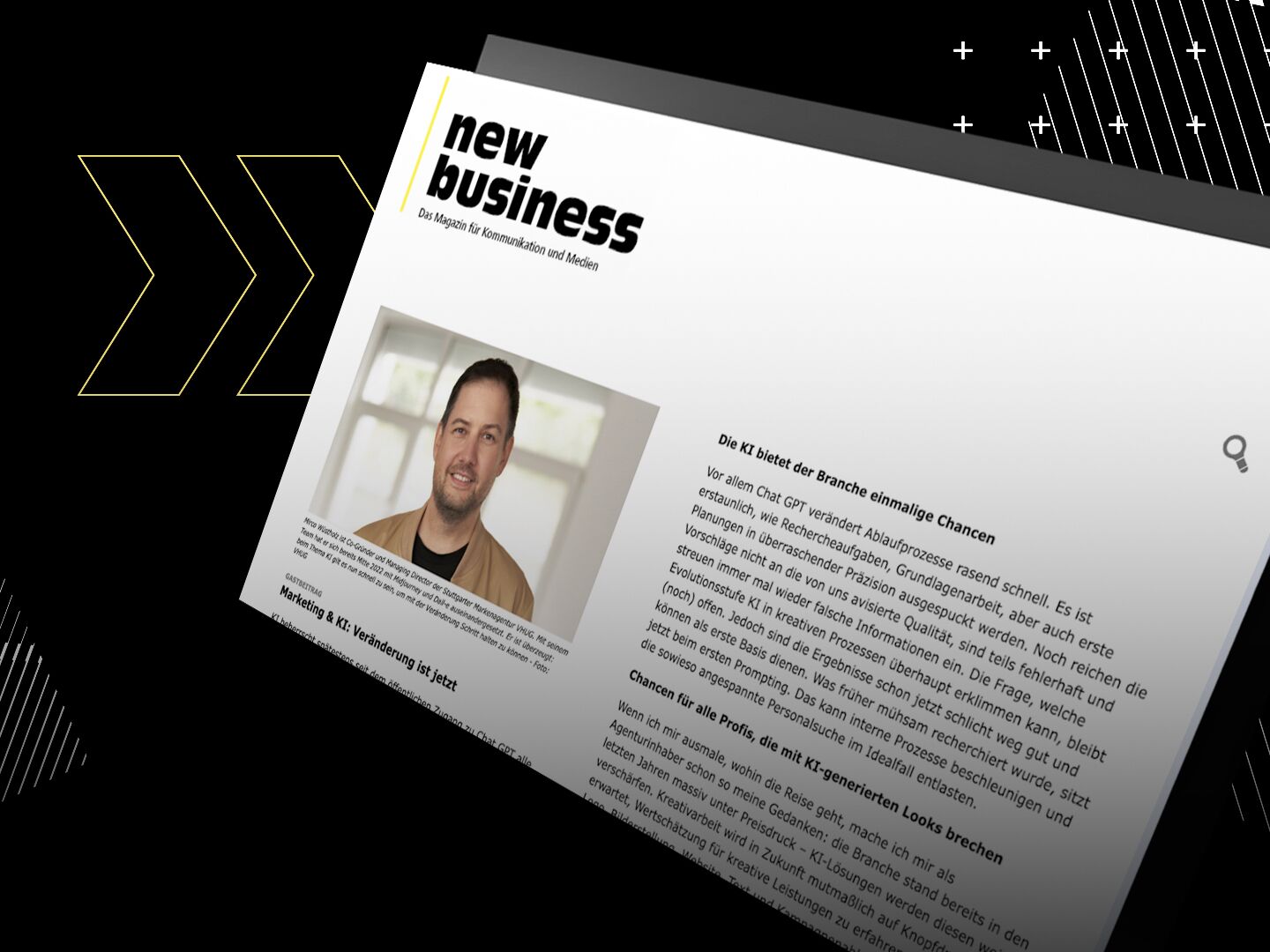
How to turn goldfish into people again.
"Attention" by Oliver Weber- 5 min reading time
Shorter. Faster. Simpler. 7 words for a headline. 5 seconds for the catch. 3
seconds to the Thumb-Stopping Moment. There's only one chance - or the
attention is gone. But is that really the case? And if so, what can you do about it?
If you look at studies and trends in marketing, you quickly get taught: There are no more people. Only goldfish. At least that's how it seems.
Every message has to be told even faster and packaged even more simply. Nobody pays attention to you voluntarily anymore. But if you look closely at
what's being published and produced in marketing at the moment, this is not really surprising.
"If we only do creation to counteract the supposedly dwindling attention, but don't give it any ourselves, why should our target group do it?"
Creation is becoming more and more interchangeable
Our urge to make everything even faster, shorter and simpler has made our creation become more and more interchangeable. At the same time, the attention span of people is currently experiencing a veritable renaissance: series are consumed in seasons, podcasts last for several hours, and vacation requests and sick notes are piling up around game releases. So it would be the perfect moment for a form of creation that doesn't just fight for the attention of the target group. Instead, it earns attention with surprising ideas and good storytelling. But what is needed for this?
We all have this one friend who has a really strange hobby or one that at least requires some explanation. Perhaps something intangibly technical or complicated. Something that nobody really understands. And yet, when he tells us about it, he speaks with such love and passion that we could listen to him for hours. And that is the point: good storytelling. And that's possible with anything - no matter how technical, complicated or boring the topic may seem at the beginning. Because even if it's only about numbers or data, at the end of the day every business is a people business. And this is exactly where we can start - against all trends in marketing. With a simple trick: see ourselves as the first customer.
It used to be said that "the bait has to be attractive for the fish, not for the fisherman". But who is the fish these days? And who is the fisherman? If we only do creation to counteract the supposedly dwindling attention, but don't give it any ourselves, why should our target group do it? If we see ourselves as the first customer and design our campaigns in such a way that we - like our friend - can tell the world about it with enthusiasm, then our target group will be happy to pay attention to us. No matter whether in 7 words. Or 700.
With 3 questions to an attention-grabbing creation.
There are three questions that we can use to check on ourselves quite easily whether what we are producing deserves the attention of the target group.
Question 1: Is what I'm doing right now (at least) not annoying? Admittedly, it maybe a somewhat sharply worded and perhaps a bit odd question. But it can help you not to want to skip PreRolls at the first opportunity or to switch away when ads come on somewhere.
Question 2: Is what I'm about to do so well crafted that neither my client nor an AI could do better? Artificial intelligences are advanced and can make our lives and work much easier, there's no doubt about that. What an AI can't do, however, is telling about something with the same rousing love and passion as our friend does when he talks about his hobby. That only we can do. So, when we, as professional creatives, try to base our creation on knowledge, excellent craftsmanship and a great deal of emotional sensitivity, then the chances are good that people will look at our campaigns for longer than 3 seconds.
Question 3: Is what I'm doing so good that I would want to tell my friend about it? This question describes the absolute supreme discipline: The absolute need to show the world what you have done. Whether it's a campaign or a high-tech B2B mailing - if we can tell people about it with enthusiasm, then the chances are high that our target group will be happy to pay attention to it. This claim will probably not always be possible.The question, on the other hand, is.
"Good stories win.
Guaranteed."
If you work inattentively, even the 6 seconds of a bumper ad can feel like an eternity. But if we focus on good stories and tell them engagingly with technical accuracy, then we don't have to worry about grabbing the attention of our target audience. Because in the end, people are just that: people. And not goldfish.

